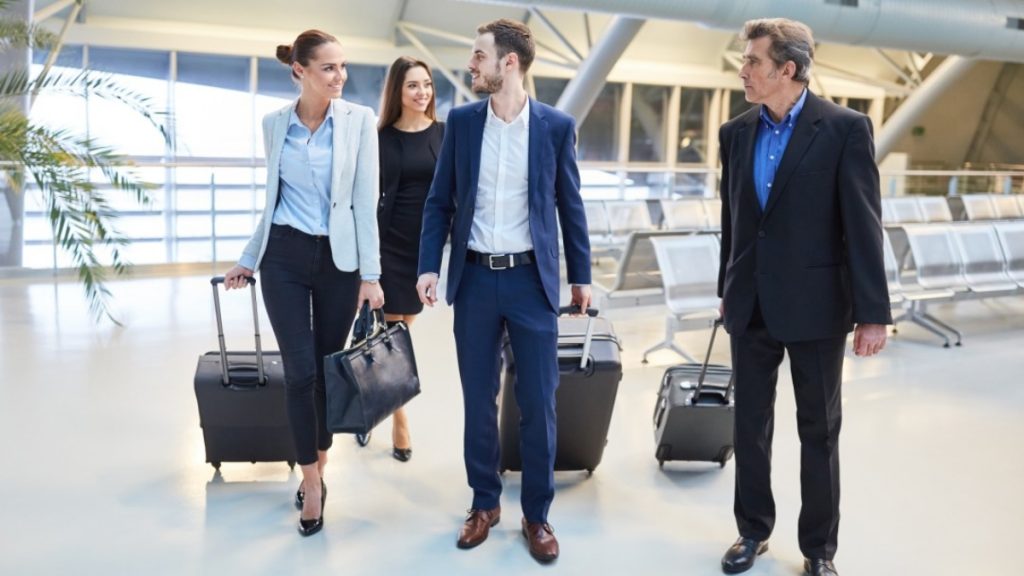Traveling exposes individuals to various risks, including accidents, illnesses, and security threats. Travel providers implement safety measures to mitigate these risks and minimize potential liabilities.
Business travel providers have a duty of care to their clients. This obligation extends to ensuring the safety and security of travelers throughout the time of corporate travel booking. Failure to meet this responsibility can result in legal repercussions and damage to the provider’s reputation. Proactive risk management reduces the likelihood of costly incidents and legal disputes.
This blog highlights 8 ways travel providers ensure travelers’ safety and security.
8 Ways to Ensure Safety of Corporate Travelers
1. Pre-Travel Risk Assessment
A thorough risk assessment is crucial before any business trip to ensure traveler safety. Business travel providers conduct detailed evaluations of potential risks at the destination, including political instability, natural disasters, and health hazards.
They rely on extensive databases, intelligence reports, and local insights to gauge these risks accurately. Advanced travel risk management platforms and consulting services are pivotal in this process.
These platforms provide real-time data, travel advisories, and risk ratings, enabling companies to make informed decisions and develop contingency plans. By identifying potential threats beforehand, travel providers can proactively address issues and ensure travelers are well-prepared.
2. Travel Insurance and Emergency Assistance
Comprehensive travel insurance is a cornerstone of business travel safety. Business travel providers offer plans that cover a wide range of incidents, from medical emergencies to trip cancellations.
Equally important are the emergency assistance services that accompany these plans. These services include medical support, emergency evacuations, and legal assistance, ensuring travelers have access to help in any crisis.
For instance, in the event of a health emergency, the insurance plan might cover hospital stays and medical treatment abroad while the assistance service arranges for medical evacuation if necessary. These provisions mitigate unexpected incidents, providing peace of mind and financial protection.
3. Technology and Real-Time Alerts
Technology has revolutionized travel safety, with mobile apps and tracking systems playing a vital role. Travel providers equip travelers with apps that offer corporate travel booking and real-time alerts about potential risks, such as weather disruptions, political unrest, or health advisories.
These alerts enable travelers to stay informed and make quick decisions to avoid danger. Additionally, sophisticated tracking systems monitor travelers’ locations, allowing business travel providers to respond swiftly in emergencies.
The integration of AI and big data enhances this capability, predicting potential crises and enabling preemptive actions. This technology-driven approach ensures that travelers are constantly aware of their surroundings and potential threats.
4. Partnership with Security Firms
Business travel providers often collaborate with global security firms to provide on-ground support. These partnerships ensure travelers have access to professional security services, such as escorts and secure transportation options.
Security escorts can accompany travelers in high-risk areas, providing an added layer of protection. Secure transportation options include armored vehicles and vetted drivers, ensuring safe transit. Additionally, crisis management and response teams are on standby to handle emergencies, ranging from natural disasters to civil unrest.
These teams are trained to provide rapid, effective responses, minimize risks, and ensure traveler safety throughout their journey.
5. Health and Wellness Support
Business travel providers prioritize health and wellness by offering extensive support services. These include vaccination advice tailored to the traveler’s destination, ensuring compliance with local health requirements, and reducing the risk of infectious diseases.
Providers also ensure access to quality healthcare facilities, partnering with trusted medical networks worldwide to facilitate prompt medical attention if needed. Mental health support is equally crucial, with services ranging from counseling hotlines to stress management resources addressing the psychological well-being of travelers.
6. Training and Preparedness
Effective training and preparedness are essential for ensuring the safety of business travelers. Travel providers conduct pre-travel training sessions that cover essential safety and security practices, including situational awareness, cultural sensitivities, and emergency response protocols.
These sessions often involve simulations and drills that mimic real-life emergency situations, allowing travelers to practice their responses and improve their preparedness. Additionally, having a comprehensive travel risk management plan is emphasized, outlining procedures for handling various scenarios such as natural disasters, political unrest, and health emergencies.
This proactive approach equips travelers with the knowledge and skills needed to navigate risks confidently and effectively during their trips.
7. Data Security and Privacy
Protecting travelers’ personal and financial information is a top priority for business travel providers. They implement robust measures to ensure data security, including encryption, secure servers, and regular security audits.
Compliance with data protection regulations, such as the General Data Protection Regulation (GDPR) and the California Consumer Privacy Act (CCPA), is strictly maintained to safeguard privacy and prevent data breaches. Secure booking and payment systems are used to protect sensitive information during transactions, employing advanced technologies like tokenization and two-factor authentication.
By prioritizing data security and privacy, travel providers build trust and ensure that travelers’ information remains confidential and protected against unauthorized access.
8. Technology and Real-Time Alerts
Business travel providers leverage advanced travel management software to enhance travel safety and security significantly. These sophisticated platforms integrate mobile apps and tracking systems that keep travelers informed and connected.
Real-time alerts and notifications are provided, warning travelers about potential risks such as severe weather, political unrest, or health advisories. The software utilizes AI and big data analytics to predict and respond to emergencies, offering proactive solutions to avoid or mitigate risks.
Additionally, the tracking capabilities enable constant monitoring of travelers’ locations, ensuring quick and coordinated responses during crises. This technology-driven approach ensures travelers are well-informed, prepared, and protected throughout their journeys.
Ensure the Safety and Security of Travelers
Ensuring the safety of business travelers is crucial for companies, and leveraging business travel software is a key strategy in achieving this goal. Business travel software provides a comprehensive suite of tools designed to enhance corporate travel bookings and traveler safety through meticulous planning, real-time monitoring, and responsive support.
With all this information readily available within the software, companies can quickly activate emergency services and support travelers in critical situations.
